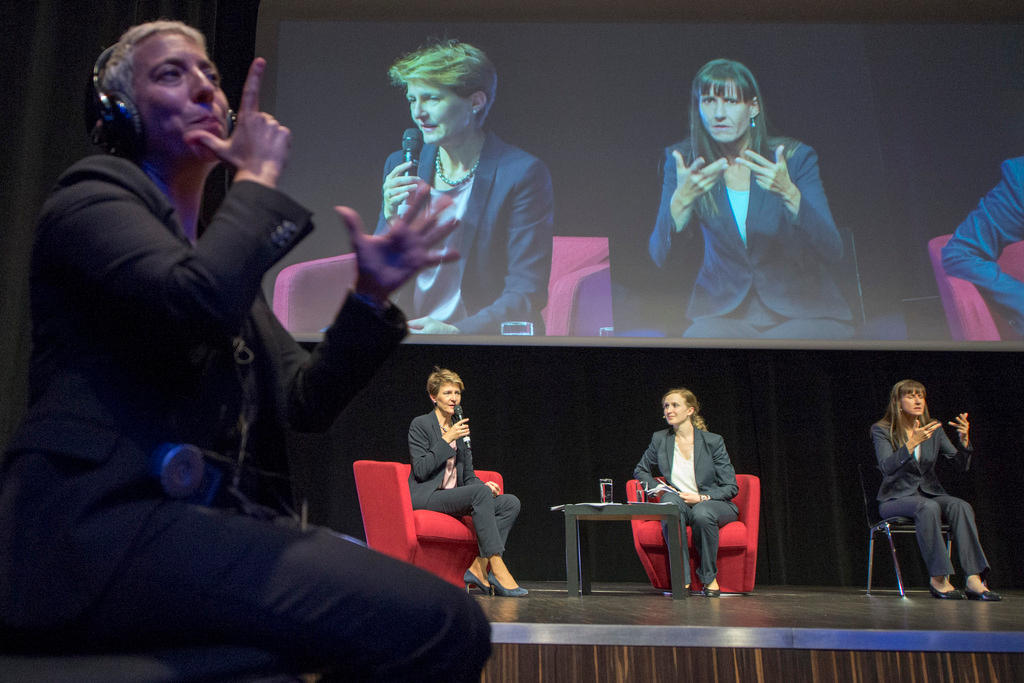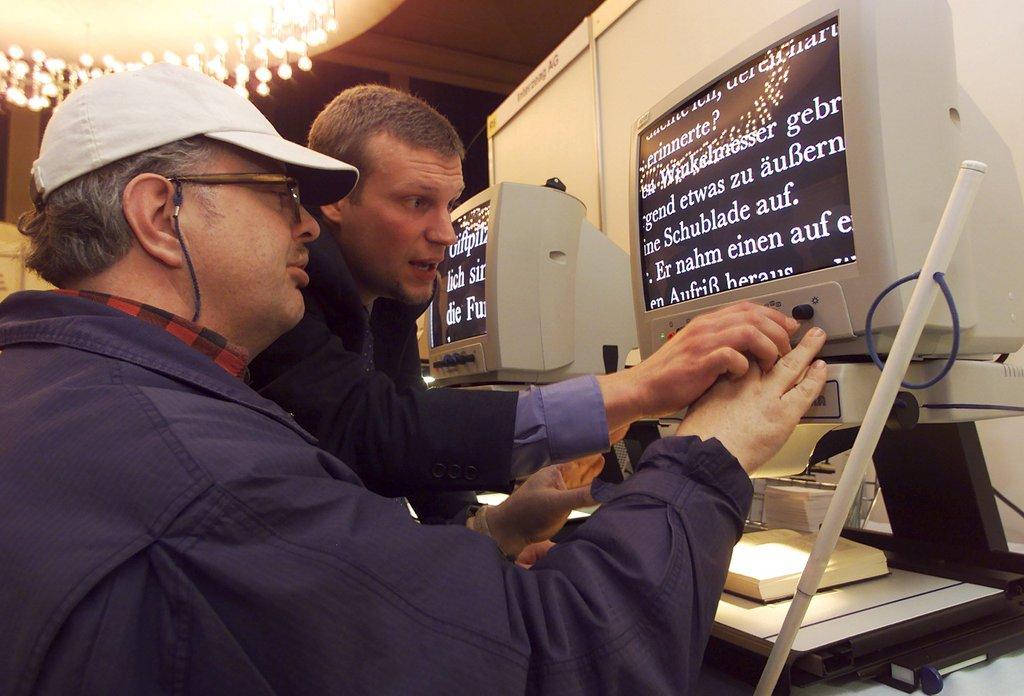Should people with severe mental disabilities be able to vote?

People with disabilities and placed under full guardianship are the only Swiss citizens who do not have the right to vote. This violates the UN Convention on the Rights of Persons with Disabilities, which Switzerland ratified in 2014. Experts are now committed to overturning this inequality.
People in this group are those with serious and long-term disabilities, that according to Article 136 of the Federal ConstitutionExternal link, makes them ‘permanently incapable of judgement’. As they are unable to care for themselves, the Cantonal Protection Office for Children and Adults places them under full guardianship.
Once disabled people have been placed under full guardianship, they are systematically excluded from political rights. However, Article 34 of the constitution stipulates that all Swiss citizens are guaranteed political rights.
Why they can’t vote
Lawmakers assume that people cannot form their own opinion if it’s clear they won’t understand the results or scope of their decisions. The decision-making process is also more complex in Switzerland since the country’s brand of direct democracy requires a deeper understanding of the for and against arguments ahead of votes on initiatives and referendums, which take place up to four times a year. In legal terms, experts say this makes things more complicated than in systems where citizens at the national level are only called on to vote for parties or presidents every few years. There is also the fear that the person needing assistance would be taken advantage of to influence their vote.
“The current solution is neither constitutional nor is it viable under international law,” says Markus ScheferExternal link, professor of Constitutional and Administrative Law at the University of Basel and Switzerland’s leading expert on the rights of people with disabilities.

More
Disabled Swiss to vote online for first time
When it comes to international law, Schefer refers to the UN Convention on the Rights of Persons with DisabilitiesExternal link, which came into force nine years ago and has been ratified by 174 member states. Bern ratified it in 2014, which means the convention’s laws are legally binding in Switzerland. Article 29 of the convention guarantees political rights to people with disabilities and Article 5 prohibits all discrimination on the basis of disability.
Low threshold regulations
Schefer’s main criticism lies in the process for full guardianship and the fact that the person in question is not subject to examination to establish whether he or she is actually able to form and express an opinion in the political process.
“It’s assumed that once a person has a guardian, he or she is unable to form a political opinion. This is not necessarily true,” he says.
Caroline Hess-Klein of Inclusion HandicapExternal link, the Swiss umbrella organisation for the country’s 1.8 million people with disabilities, is also critical of the Swiss law. She calls for the requirements to be as low as possible, so people who are under full guardianship are allowed to execute their political rights.
These requirements should be similar to the ones needed to get married, she says. “As marriage is a basic and personal right, everyone should have the choice to get married. According to our Federal Court, it’s enough to roughly know what marriage entails,” says Hess-Klein, head of Inclusion Handicap’s division for equality.
Shadow report
Inclusion Handicap has recently published its first shadow report on the current situation of the implementation of the UN Convention on the Rights of Persons with Disabilities. It has found several areas where these people are still discriminated against in Switzerland. The report also suggests several solutions on a federal and cantonal level.
The fact that people with certain disabilities are discriminated against questions the integrity of the democratic process in Switzerland, according to Schefer. He suggests that the fewer people included, the less democratic the process. Just as was the case when voting rights for women were introduced.
“This is also about our political culture,” he says. “Today, nobody doubts that the vote introducing voting rights for women was justified. I hope it will be similar in this case and that in a few years nobody will argue that people with certain disabilities don’t have political rights.”
Full guardianship
In Switzerland, around 1.8 million people have a disability. People with long-term physical, psychological and mental disabilities can be placed under full guardianship by the Swiss authorities.
Due to the lack of central statistical data, it is not certain how many people have actually been placed under full guardianship in Switzerland.
The three cantons of Vaud, Geneva and Ticino offer people with disabilities the opportunity to take legal steps to claim their political rights. However, these voting rights only apply to communal and cantonal votes, not for national votes.
Within the European Union around half of the 28 member states are pretty relaxed about handling the voting rights for persons with disabilities. Some countries such as the Netherlands, Ireland and Finland do not have any barriers (source: Spiegel online).
Translated from German by Billi Bierling
Translated from German by Billi Bierling

In compliance with the JTI standards
More: SWI swissinfo.ch certified by the Journalism Trust Initiative











You can find an overview of ongoing debates with our journalists here . Please join us!
If you want to start a conversation about a topic raised in this article or want to report factual errors, email us at english@swissinfo.ch.